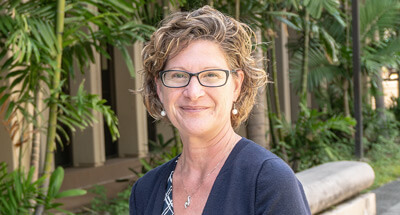
Charlene Baker
Professor, Department Chair
Office: Sakamaki C-401
Telephone: 1 (808) 956-5669
Email: bakercha@hawaii.edu
Browse My Publications:
Background
My interest in psychology began as an undergraduate. A class in community psychology opened my eyes to the complexity of human behavior. According to community psychology principles, we should not focus only on the individual but also on the broader ecological context surrounding the individual. An integral part of this broader context is culture. Living in Michigan, Georgia, and now Hawaiʻi, all with vastly different cultural landscapes, has changed who I am as a researcher, including the questions I ask, and the methods I use to ask them. What has remained constant is a commitment to exploring the complexity, especially the intersections of human behavior, and then using this bigger picture to create intervention opportunities that result in healthier individuals and environments.
Education
- PhD, Community Psychology, Georgia State University, 2002
- MA, Community Psychology, Georgia State University, 1999
- BS, Psychology, Michigan State University, 1996
Courses
- PSY 459: Social Psychology: Advanced Topics
- PSY 781: Community Psychology Seminar
- PSY 789: Community Psychology Research
Research
My research is focused on how individual, family, community, systems, and societal factors influence social problems, and I am particularly interested in the intersection of social problems; e.g., domestic violence and homelessness; dating violence and substance use. Much of my work has centered on understanding the causes of and strategies for preventing intimate partner violence. In addition, my recent work has focused on disaster recovery, and the factors that facilitate recovery, such as place attachment. A key underlying factor in all of my research is a focus on the context in which these experiences occur. Understanding this context is essential in the development of prevention strategies that are appropriate and culturally grounded, thus, increasing their chance of success.

